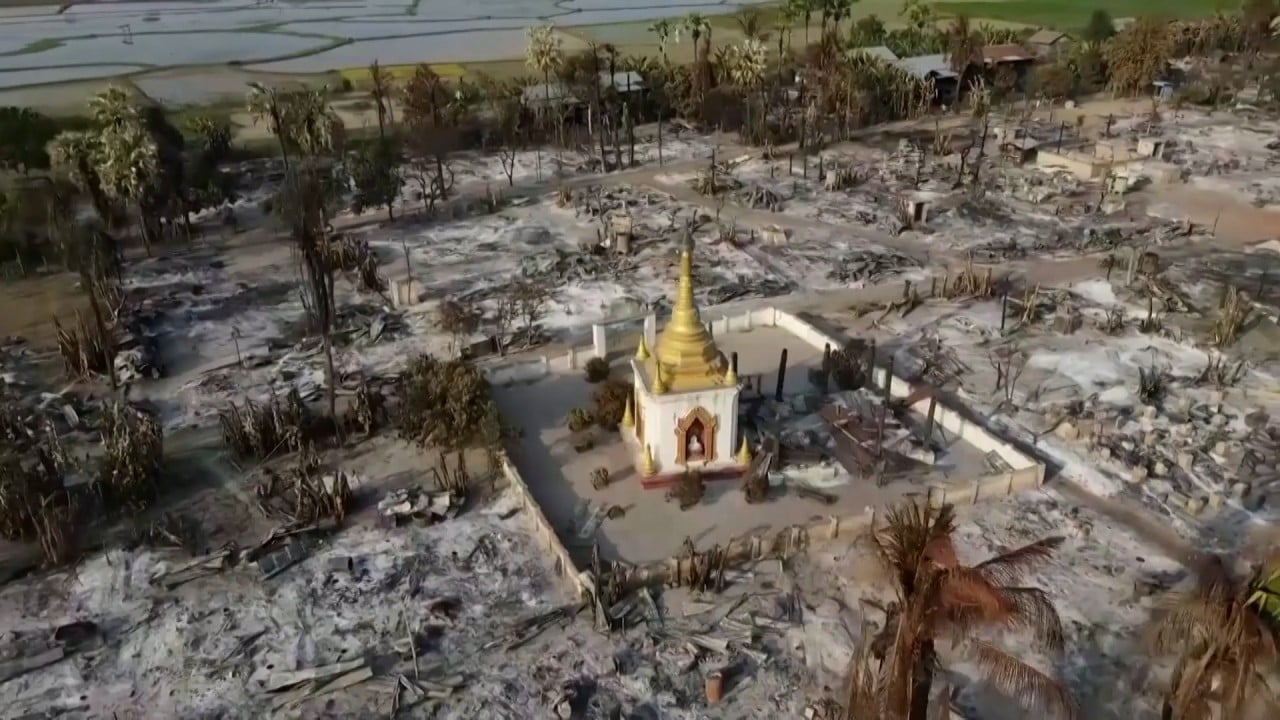Why won’t Asean condemn Myanmar junta’s plan to hang four people? In case they need to use the same option
- The US and UN have voiced concern about the Myanmar junta’s decision to hang pro-democracy activists, but Asean members have been quiet on the matter
- 5 Asean states retain capital punishment, so speaking out against the use of judicial executions may jeopardise their own right to impose the death penalty

In Southeast Asia, some countries insist their foreign policy is driven by a set of fixed “existential principles”.
These nations say they do not instinctively take sides when a matter of grave international concern surfaces – be it the Ukraine-Russia war, the South China Sea territorial row, or the internal dispute in Myanmar whether the ruling junta has legitimate executive power.
Officials who trumpet these lines say they will always take a stand when “international law” is breached. Of course, the reality is that no country has such a black and white foreign policy.
Putting that on display this week has been the region’s response – or lack thereof – to the Myanmar junta’s egregious plan to carry out death sentences handed down to four people, including two prominent democracy activists.
Rights groups such as Human Rights Watch noted the junta’s insistence on carrying out the hangings follow the rejection of appeals that took place during so-called “closed-door trials”.
If the junta carries out the executions – which it insists it will – it would mark the first time in three decades the death penalty would be used in the country. Since the junta took power on February 1, 2021, 114 people have been sentenced to death, including 41 in absentia.
The United States, France and the United Nations have openly voiced concern about the imminent hangings. From within the Association of Southeast Asian Nations (Asean), however, there has not been a squeak from officialdom.
The independent group Asean Parliamentarians for Human Rights, led by Malaysian lawmaker Charles Santiago, currently stands alone in the region in raising alarm bells.
Santiago said in a statement that Asean and the international community needed to “use every means at their disposal to prevent these executions” saying they would be tantamount to “cold blooded political assassinations”.
It is understandable that senior officials including foreign ministers are unlikely to make such pointed comments.
In some cases, these officials have to balance their respective national positions: speaking out against the junta’s use of judicial executions might jeopardise their own right to impose the death penalty.
Five Asean states – Singapore, Malaysia, Indonesia, Thailand and Vietnam – retain capital punishment, while Laos and Brunei are considered abolitionist in practice. The Philippines and Cambodia have legally abolished the death penalty.
Still, given how it is clear that the four facing execution have not been granted due process – far from it – it is not too much to ask that even the countries that retain the death penalty condemn the junta’s plan. It will go some way to making their claim about “standing on principle” more credible.
